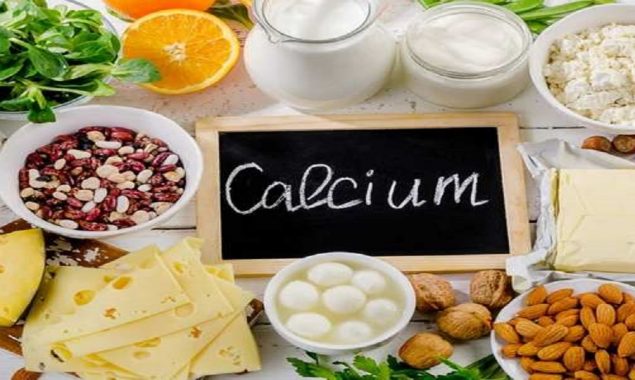US authorizes Covid boosters for all over 18s
WASHINGTON: The United States authorized the Pfizer and Moderna Covid vaccine boosters to all...

Prevent osteoporosis: Eat healthy food for healthy bones
Osteoporosis may be severe, resulting in bones fractures in the spine or hip, which can result in disability and even death.
Bone fractures, particularly in the spine or hip, are the most serious effects of osteoporosis, according to the Mayo Clinic. A hip fracture, which is frequently caused by a fall, can result in disability or even death. Even if you don’t fall, fractures might occur, and your vertebrae can degenerate, causing back discomfort and bad posture.
The good news is that eating the correct foods can help promote our bones’ strength and healthy aging.
Magnesium is the first nutrient that must be consumed in sufficient amounts. It may surprise you to learn that many individuals in Canada have insufficient magnesium intake, according to Health Canada.
This is problematic for a number of reasons, not least because magnesium is one of the elements that contribute to the formation of our bones (even though calcium gets all the credit).
Pumpkin seeds, hemp seeds, lima and kidney beans, quinoa, brown rice, almonds, cashews, avocados, and even dark chocolate are all good sources of magnesium.
Vitamin K is a fat-soluble vitamin. Vitamin K is involved in bone metabolism, and reduced vitamin K consumption has been linked to weaker bones and an increased risk of fractures in several studies.
Dark leafy greens like spinach, kale, and collards (which also contain magnesium) are high in Vitamin K, as are classic green vegetables like broccoli, Brussels sprouts, and asparagus.
As you can see, eating a variety of vegetables is critical to getting enough vitamin K. Avocado and kiwi are two foods that are high in vitamin K.
Carrots, tuna, squash, sweet potato, cantaloupe, mango, and all of the leafy greens high in Vitamin K mentioned above are some popular — and abundant — sources of vitamin A.
Calcium and vitamin D Given that they are properly regarded as the fundamental and most important nutrients for bone health, vitamin D and calcium are arguably the least unexpected elements on our list. Calcium makes up the bulk of the human skeleton and vitamin D aids in its absorption and use. They make an excellent team.
Milk and fortified substitutes, as well as canned fish with the bones, provide both vitamin D and calcium.
When it comes to vitamin D, one out of every three Canadian people is deficient. In reality, most Canadians don’t eat nearly enough fish (the principal dietary source of vitamin D) to meet their vitamin D needs, which becomes more of a problem as they become older and their concerns about bone health rise.
Because the body’s capacity to synthesize vitamin D from sunlight diminishes with age, Health Canada advises vitamin D supplementation for anyone aged 50 and older.
According to the agency, 85 percent of Canadians who took vitamin D supplements had adequate blood levels, compared to 60 percent of those who did not.
Salmon is one of the richest food sources of vitamin D, whether fresh or canned, and canned salmon with bones is a bone-health superfood.
It’s critical to keep your bones strong if you want to live a long and healthy life. If you include the most vital nutrients in your diet, you will not only improve your bone health but also your overall health and well-being.
Catch all the Health News, Breaking News Event and Latest News Updates on The BOL News
Download The BOL News App to get the Daily News Update & Follow us on Google News.